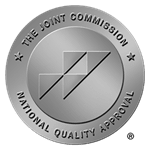How to Deal With a Narcissist

Dealing with a narcissist can be especially challenging. Why? Because they often engage in self-centered behaviors which can be confusing and deeply painful for the people in their life. Below, we’re sharing how to identify a narcissist and how to manage your relationship with them.
What is a Narcissist?
A narcissist is a person who has an excessive interest in themself, exhibiting such traits as an inflated sense of self-importance, a deep need for excessive attention, and an overall lack of empathy for others.
Like many personality disorders, narcissism exists on a spectrum. The difference between someone diagnosed with Narcissistic Personality Disorder (NPD) and someone who simply exhibits narcissistic traits lies in the severity, consistency, and the impact of their behaviors on others. Understanding the difference between the two is critical for managing relationships and recognizing when professional intervention might be necessary.
Symptoms of Narcissism
While narcissism can be challenging to identify, there are several key symptoms you can be on the lookout for, including:
- Inflated sense of importance, talents, or accomplishments
- Constant need for attention and validation
- Lack of empathy and disregard for others’ experiences
- Manipulation and deceit for personal gain
- Sense of entitlement
- Arrogant and demeaning behavior
- Extreme jealousy towards others
- Low self-esteem, despite an outward appearance of confidence
How to Deal With a Narcissist
A close relationship with a narcissist can have lasting negative consequences, including low self-esteem, loss of identity, lack of boundaries, self-blame for others’ behavior, and depression or anxiety. With the right strategies, however, you can protect your well-being and navigate interactions with a narcissist more effectively.
It’s important to note that the best way to deal with a narcissist can vary based on the nature of your relationship – more specifically, whether the narcissist in your life is someone you must have regular contact with.
Below are our top recommendations for managing your relationship with narcissists in both your personal and professional life.
In Your Personal Life
If you are dealing with a narcissist in your personal life – a friend, family member or romantic partner – it’s important to learn how to protect yourself. While you won’t be able to change their behavior, you can certainly control how you respond to it.
Our top strategies for dealing with a narcissist in your personal life include:
1. Set Boundaries
Clearly define what behaviors you will and will not tolerate, and be firm in enforcing these boundaries. If you ever feel uncomfortable setting a boundary, remember this: Your boundaries will only offend those who have grown accustomed to crossing them.
2. Keep Calm (and Carry On!)
Your emotional reactions are like oxygen for a narcissist. If they try to provoke you, stay calm and maintain control of the situation.
3. Limit Interaction
Engage with the narcissist only when necessary, and keep conversations focused on practical matters if things get out of control. Avoid sharing personal information that could one day be used against you.
4. Practice Self-Care
Engage in activities that help you relax and recharge, including exercise, hobbies, and spending time with supportive friends and family.
5. Seek Support
Keeping things to yourself can prevent you from clearly seeing a narcissist’s toxic behavior. Talk to friends, family, or a therapist about your experiences to help you maintain clarity and better cope with the situation.
6. Know When to Walk Away
If your efforts to manage your relationship with a narcissist feel fruitless, or if the relationship becomes toxic or abusive, it may be time to remove yourself from the situation.
In Your Professional Life
While the formalities of a workplace may limit your ability to block a narcissist, there are many things you can do to better navigate the relationship, including:
1. Set Firm Boundaries
Be clear on what you will and won’t accept in your professional role, including work schedule, tasks, and communication preferences. It’s also helpful to learn the art of saying “no” to anything that falls outside of your clearly communicated boundaries.
2. Stay Professional
Keep your interactions professional at all times, avoiding any gossip or sharing overly personal information. Speak to the individual only on matters related to your job responsibilities.
3. Document Everything
Because you may not be able to trust the word of a narcissist, it may be helpful to maintain records of your interactions, including emails and meetings.
4. Don’t Share Personal Information
Because narcissists are inclined to use personal information against you when it suits their goals, share only what’s necessary for your professional relationship and avoid discussing personal matters if possible.
5. Limit Interactions
Keep your interactions short and informative, and avoid showing emotional reactions. This cuts off the life force of a narcissist, giving them nothing to use against you.
6. Focus on Solutions
When faced with a conflict, focus on finding a solution rather than getting drawn into a power struggle. Keep discussions goal-oriented and emphasize joint problem-solving.
7. Report Bad Behavior
Don’t allow the narcissist to walk all over you. When their behavior crosses the line, report it to a supervisor. Be sure to back up your claims with any documentation you have.
Professional Mental Health Counseling in Orange County, CA
Suffering from symptoms of narcissism or dealing with a narcissist in your life? Our licensed, clinical team and holistic treatment model allows our clients to explore how to accept and embrace the inevitable hurdles and pain that accompany narcissism and other mental health concerns. Learn more about our intensive outpatient and partial hospitalization programs.










